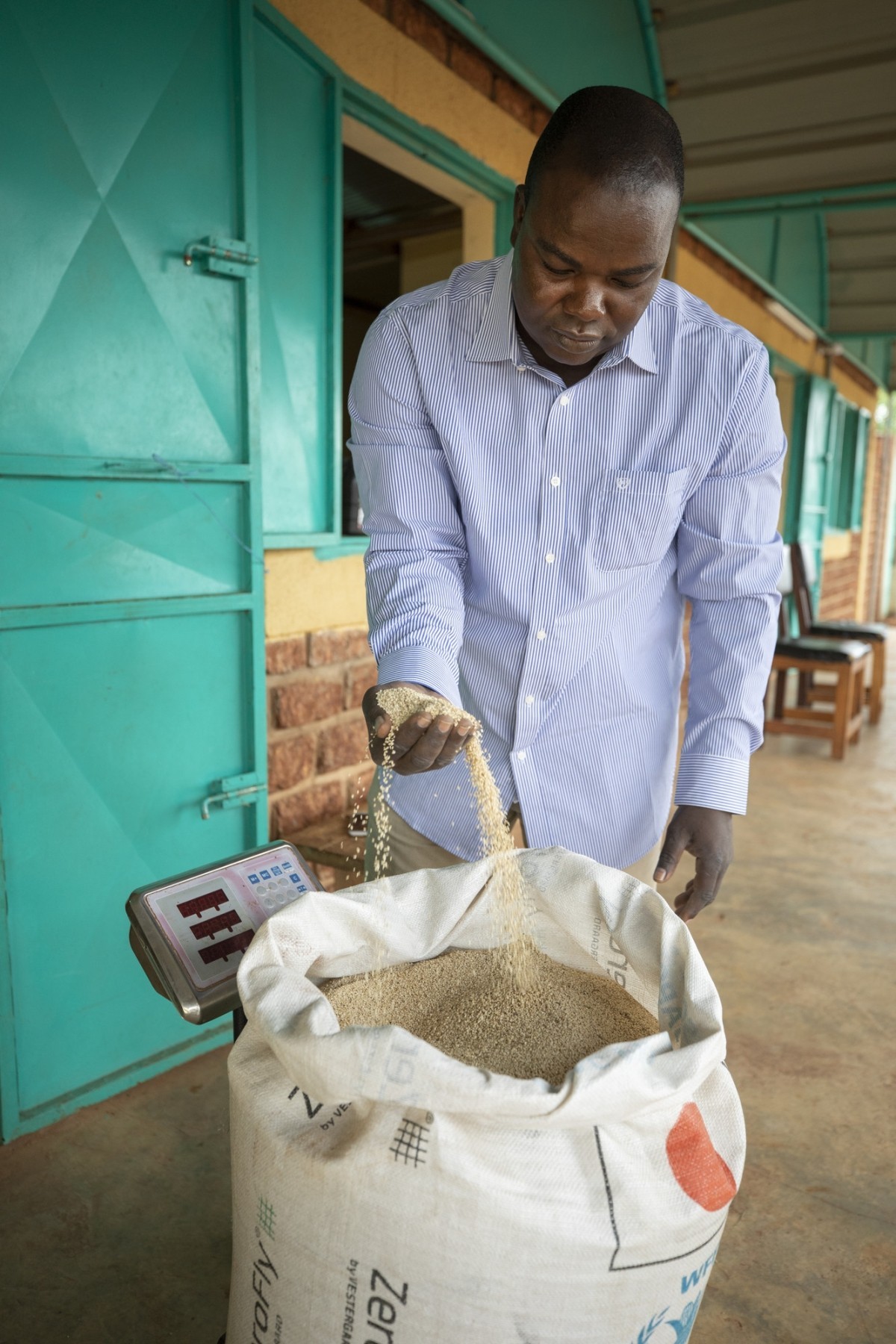Sesame farmers, buyers and creditors work as partners
Emmanuel Kadéba is in the midst of the sesame harvest season at the El Shaddai Ltd. warehouse in Dedougou but his thoughts are beyond the immediate. He is thinking about how to export directly to markets in foreign countries, especially in Asia.
The company he founded has bought and sold sesame for 10 years. When he began, his warehouse would be one-third full after harvest, far below its 300-metric ton storage capacity. Five years ago, two-thirds of the space was filled after harvest and collection. He thinks the trend will continue. The sesame he has seen so far is much higher quality and requires less post-harvest preparation. That means better prices for his business and the farmer cooperatives he sees as business associates.

Emmanuel says the boom in production and quality is attributable to the Sesame Marketing and Exports (SESAme) project, carried out by Lutheran World Relief and funded by the U.S. Department of Agriculture.
Yields are up because farmer cooperatives are distributing high-quality seeds to their members that have a shorter growing cycle, making them less susceptible to the long dry spells that have become routine in the Sahel.
The cooperatives are also processing the sesame to meet the high purity levels required by international markets. They clean and sort the seeds, which means Emmanuel can move the product quickly.
And because cooperatives are now bulking — storing the collective sesame harvest of their members — Emmanuel's own costs are lower because he isn’t spending as much collecting sesame from individual farmers.
Emmanuel’s contracts with the cooperatives are communicated to individual farmers, so they know exactly what price they’ll get for their sesame.
“Farmers know what they will earn, and it is in plain sight,” he says.
As sesame has become one of Burkina Faso’s most important agricultural products, Emmanuel is thankful so much has changed and improved over the past couple years, especially relationships.
Emmanuel says he used to barter with individual farmers and there was mistrust on both sides. Farmers questioned whether he was giving them good prices, and he wasn’t getting a consistently high-quality product.
“We are building a trust and mutually making lives better,” he says.



